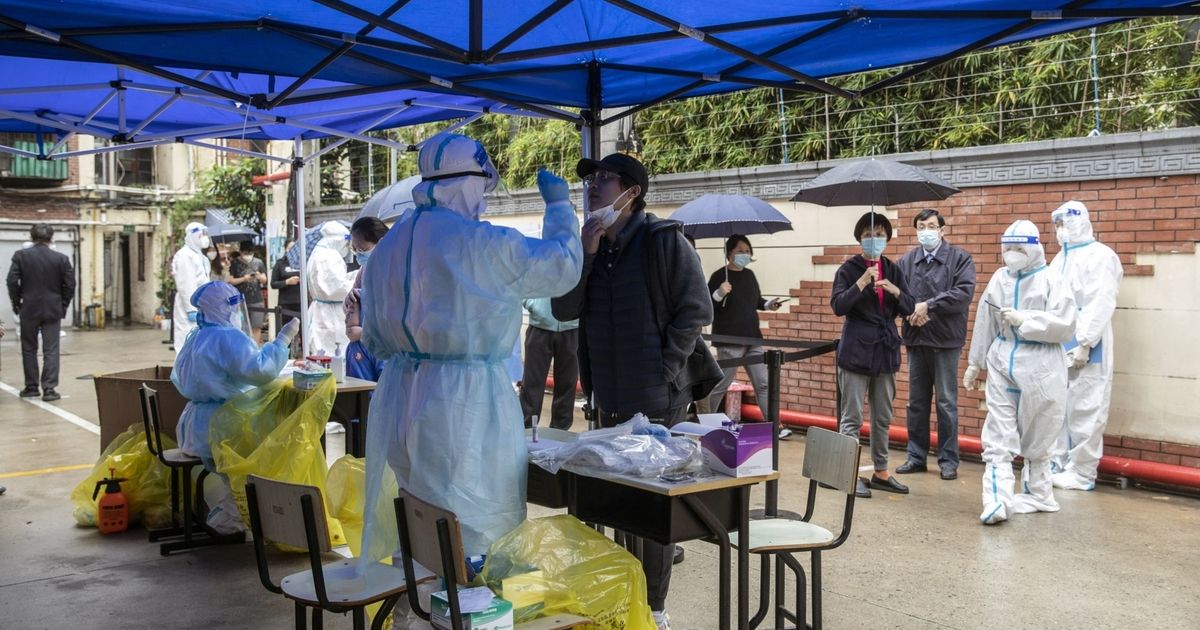
SHANGHAI — China said on Friday that it will help hundreds of companies in key industries resume production in locked-down Shanghai, the commercial capital at the center of the country’s latest COVID-19 outbreak, as businesses warn of the growing economic toll of restrictions.
The announcement comes as a growing number of business leaders and analysts warn that China’s strict “zero-COVID” policy is triggering economic disruptions that are rippling through global supply chains for goods from electric vehicles to iPhones.
The Ministry of Industry and Information Technology will work with 666 companies making semiconductors, automobiles, and the medical sector to get back to work, it said in a statement late on Friday.
Teams have been sent to Shanghai to ensure the resumption of work at these key industrial companies, the regulator added.
Electric-vehicle maker Xpeng and technology giant Huawei warned of looming industry-wide bottlenecks if suppliers in Shanghai and surrounding areas cannot resume work, while numerous foreign companies have recently idled production at Chinese plants.
Airlines and the real estate sector are also feeling the pain.
Although Shanghai’s 23,000 new infections on Friday were down from more than 27,000 the previous day, they included a record 3,200 symptomatic cases, versus 2,573 a day earlier.
Xpeng CEO He Xiaopeng issued a dire warning for the auto industry unless the situation improved.
“If the suppliers in Shanghai and its surrounding areas can’t find a way to resume operations and production, in May possibly all of China’s carmakers will have to stop production,” he said on the Wechat social media app.
Richard Yu, CEO of both Huawei’s consumer business group and its smart car unit, mirrored He’s sentiments in private comments confirmed by the company, adding that the industry faces huge losses.
Shipments of some Apple products, as well as Dell and Lenovo laptops could also face delays, analysts said.
On Friday the transport ministry announced a national pass program to allow cargo vehicles to move between higher risk zones without delays, as long as drivers have normal temperatures and a negative virus test no older than 48 hours.
An April 7 study by Gavekal Dragonomics found that 87 of China’s 100 largest cities by gross domestic product have imposed some form of quarantine curbs.
COVID curbs have also hit travel nationwide, with flag carrier Air China reporting a drop of 70 percent in March traffic from a year ago.
Home prices stalled for a second month in a row in China’s 70 major cities last month, official data showed on Friday, as the lockdowns sapped consumer confidence and undermined demand.
Some of those locked down in Shanghai have expressed frustration on social media over the difficulties in getting food and poor conditions at central quarantine facilities.
Most of Shanghai’s shops were closed, except for some with half-opened shutters from which goods were being carried to waiting delivery drivers.
The city has converted residential buildings into quarantine centers but that is sparking protests from angry neighbors worried about higher risks of infection.